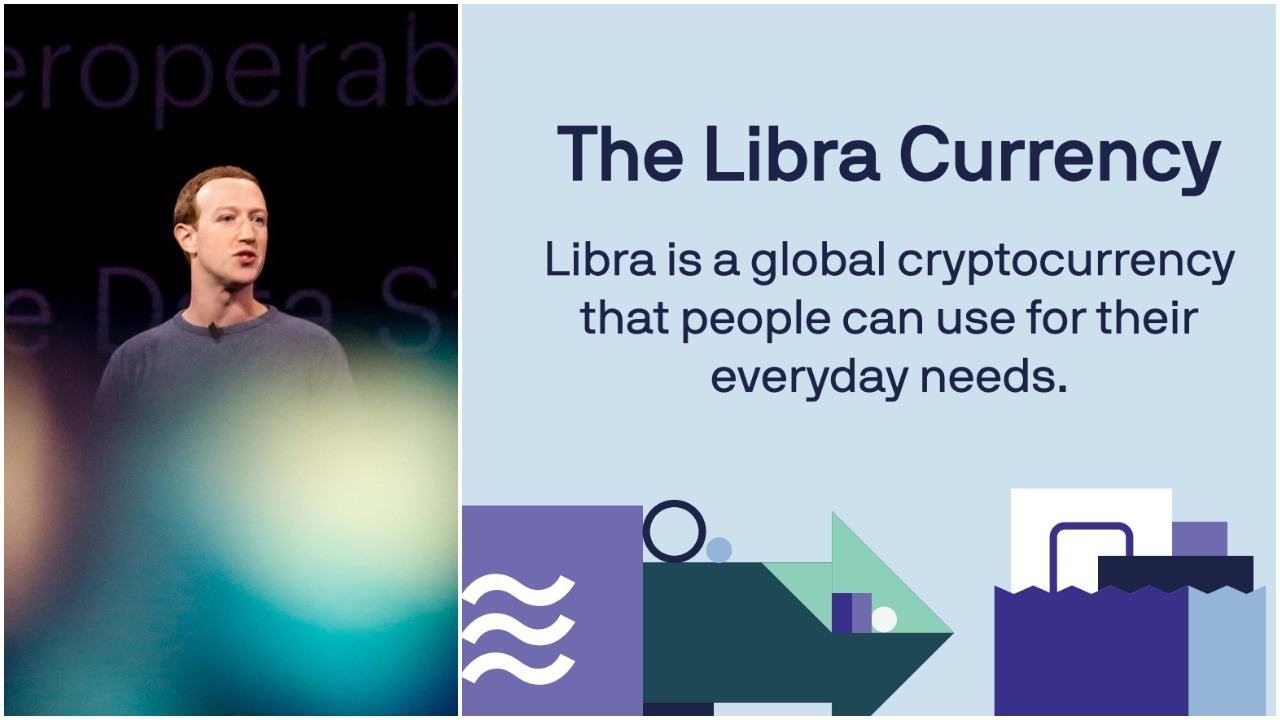
Facebook has revealed the white paper for its much-hyped cryptocurrency, “Libra.” After months of speculation, Facebook outlined the vision for its crypto project and released the testnet for its blockchain.
“Libra’s mission is to enable a simple global currency and financial infrastructure that empowers billions of people.”
Facebook announces cryptocurrency, blockchain and wallet
Facebook’s also revealed a crypto wallet called Calibra. It will operate as a standalone app and via a button on Messenger and WhatsApp. It will power peer-to-peer transfers and eventually retail payments including purchases through Instagram.
Facebook claims the Libra cryptocurrency is built on a secure, scalable and reliable blockchain, backed by a reserve of real assets. The ecosystem will be governed by the Libra Association, a consortium of partners that includes Visa, MasterCard, and Uber.
Facebook believes its Libra cryptocurrency will kickstart the “internet of money” and empower billions of people that don’t currently have access to financial services.
Facebook cryptocurrency: send money to friends and make payments
Facebook’s cryptocurrency is expected to work through the Messenger app and WhatsApp. It’s designed with three main use-cases in mind:
- Send peer-to-peer payments between friends, like Venmo.
- Send remittance payments across borders to family members.
- Make payments to retail merchants (online and offline).
With zero fees and almost instant transfers, it will be faster and cheaper than traditional payments, especially sending money overseas.
“Sending money should be as easy as sending a photo.” – Mark Zuckerberg
In China, tech companies already dominate the payments ecosystem through WePay and AliPay. Facebook is looking to follow their lead.
A “stablecoin” to reduce volatility
Facebook’s Libra coin is designed to be as stable as possible by pegging its value to a basket of global currencies. Indeed, the Libra white paper criticizes existing cryptos for their volatility:
“Mass-market usage of existing blockchains and cryptocurrencies has been hindered by their volatility and lack of scalability, which have, so far, made them poor stores of value and mediums of exchange.”
To keep Libra stable, Facebook will create a pool of $1 billion worth of international currencies and securities. This “reserve” will back the Libra coin and keep it stable.
“A basket of bank deposits and short-term government securities will be held in the Libra Reserve for every Libra that is created, building trust in its intrinsic value.”
To generate this $1 billion pool, Facebook hopes to secure 100 partners to be part of the Libra Association, at a cost of $10 million each.
What is the Libra Association?
The Libra Association is made up of big-name companies like Visa, MasterCard, Uber, PayPal, and Vodafone, as well as non-profits which will govern the network. Think of them as Facebook’s partners in the cryptocurrency project.
Each of the members will pay $10 million to manage a node on the Libra network.
This is Facebook’s attempt to decentralize the payment system. In other words, Facebook itself won’t process and control the payments on its own servers.
Critics have pointed out that a consortium of established finance companies isn’t exactly decentralized. Facebook admits the blockchain is “permissioned” but it aims to pivot towards an open, permissionless system in the future.
Facebook cryptocurrency team
Facebook has been quietly hiring a blockchain team over the last 18 months. The department is lead by former PayPal president and former Coinbase board member David Marcus.
A large portion of the team are PayPal alumni, hinting at a strong focus on payments. The team reportedly worked behind closed doors for secrecy.
Facebook Libra coin might pay interest
A number of unconfirmed rumors and opinions have circulated about the Facebook crypto project. One of the most compelling is that it is likely to pay interest to users.
Wyoming blockchain regulator Caitlin Long predicts that Zuckerberg will be forced to pay interest to users because the $1 billion reserve pool will generate interest.
“There’s no way Facebook will be able to pocket these big profits without sharing them with users.”
Will it trigger a huge cryptocurrency bull run?
Bitcoin is currently hovering at year-highs with a recent spike above $9,000. Many analysts have attributed the jump to Facebook’s entry to the crypto ecosystem.
Facebook, they claim, will introduce cryptocurrency to billions of new users. It will legitimize and normalize crypto for the masses. The Libra coin is a huge educational on-ramp to digital assets and may even trade on existing crypto exchanges, leading many to explore bitcoin and alternatives.
“The launch of Facebook’s cryptocurrency will go down in history as THE catalyst that propelled digital assets (including bitcoin) to mass global consumer adoption.” – Barry Silbert, Digital Currency Group.
On Tuesday, the Winklevoss twins, former arch-nemeses of Mark Zuckerberg said Amazon, Apple, Netflix, and Google will quickly follow Facebook into the crypto arena.
Not everyone is convinced
Economist and crypto-critic Nouriel Roubini said the project had nothing to do with blockchain or cryptocurrencies:
“It has nothing to do with blockchain. Fully private, controlled, centralized, verified and authorized by a small number of permissioned nodes. So what is crypto or blockchain about it? None.”
CCN analysts have also criticized the project, calling the Libra Association a lamb to the slaughter.
Libra white paper and testnet launch
Facebook launched the full white paper for the Libra project on Tuesday. The document outlines the vision, goals, and technology basis for the cryptocurrency.
Zuckerberg also launched the blockchain’s testnet under an open source Apache 2.0 license and the technical paper for the blockchain.


